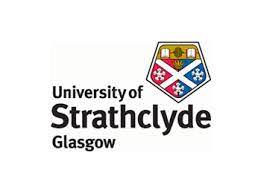Strathclyde University Plays Key Role in New Centre for Doctoral Training Focused on Net Zero Technologies
The University is a partner in a new Centre for Doctoral Training (CDT) in Net Zero Technologies.
In collaboration with the National Subsea Centre, Robert Gordon University (RGU), and the Net Zero Technology Centre (NZTC), the centre is designed for researchers who want to aid the global transition to net zero whilst continuing a career in industry.
The CDT will teach and mentor a cohort of students, allowing them to spend around 75% of their time developing invaluable skills working directly with a company. The remaining time will be spent on PhD-level research projects with taught modules. Students will be based full-time within their respective companies for the duration of the programme, with occasional off-site workshops and training sessions.
Industrial focus
Upon successful completion of the four-year programme, students will achieve an Engineering Doctorate, equivalent in academic standing to a conventional PhD, but achieved through research and innovation that is much more industrially focused.
The CDT, which has been formed as part of a five-year Memorandum of Agreement (MOA) between Strathclyde and RGU to collaborate in research and technology development, is open to students with expertise across a range of disciplines, including Engineering, Computing and IT, Science and Technology, Physics and Mathematics.
Willie Reid, Director of the University of Strathclyde’s Offshore Energy Transition Programme, said:
Strathclyde has a long history of working closely with the offshore industry and we are delighted to extend our partnership with RGU in the National Subsea Centre with the launch of a new Centre for Doctoral Training.
“The valuable support of NZTC will enable both universities to develop further collaboration for the benefit of technical pioneers working in the fast-growing Offshore Energy Transition.”
Professor John McCall, NSC Director, said: “Launching the CDT is a brilliant advancement for our academic community and will play a crucial role in fostering research, innovation and expertise in advanced technologies that will support the global transition to a sustainable blue economy.”
Collaborative research
Myrtle Dawes, CEO of the Net Zero Technology Centre, added: “By providing a platform for talented individuals to contribute to the global transition to net zero while advancing their careers in industry, the CDT stands as a testament to the power of collaborative research and the pursuit of impactful, industry-focused solutions.”
Professor Nick Fyfe, Vice Principal for Research and Community Engagement at RGU, said: “This centre is a really exciting development and will make a major contribution to RGU’s commitment to grow and diversify its doctoral community.”

